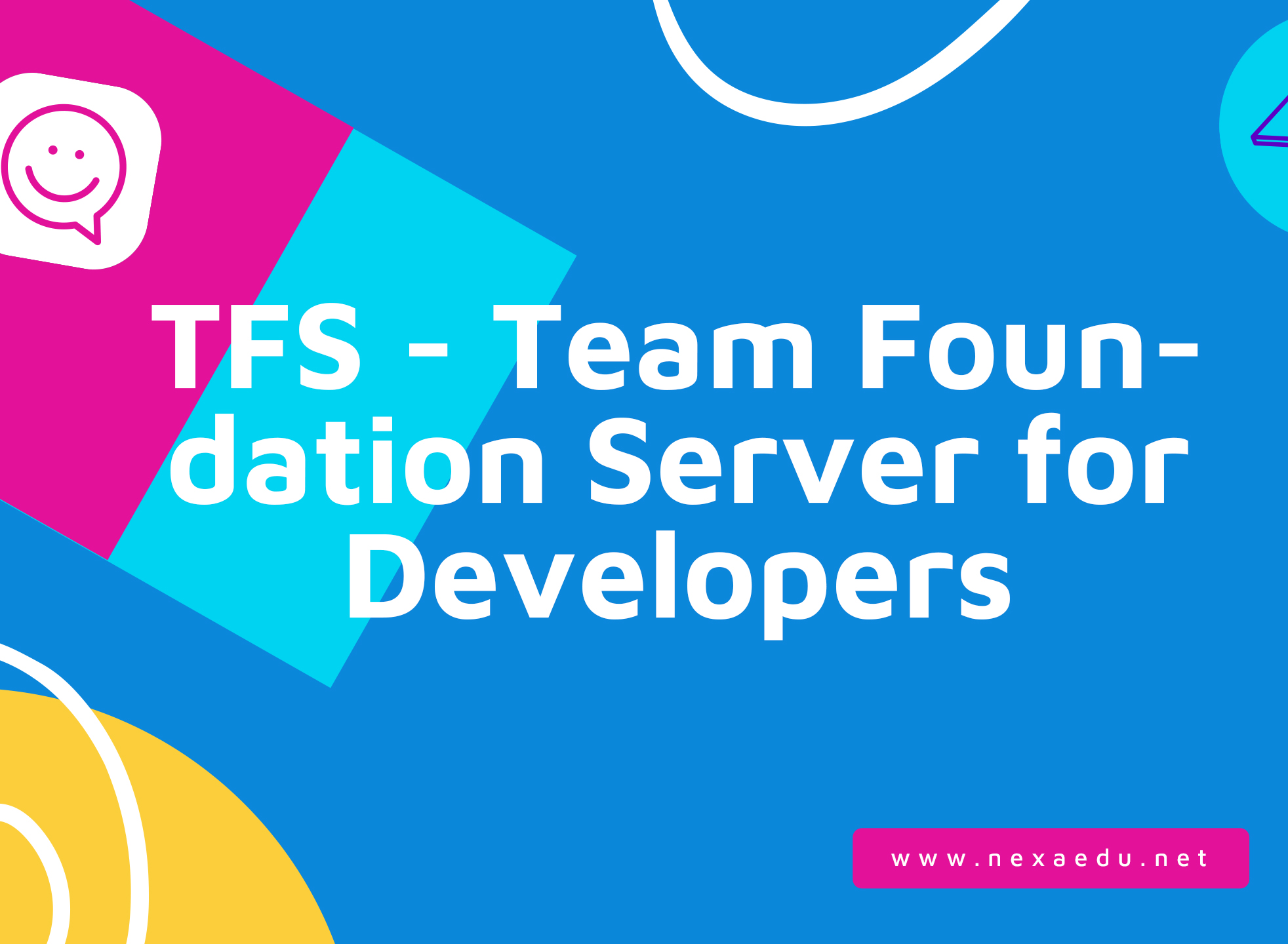TFS - Team Foundation Server for Developers
in Applications Development
Created by
NexaEdu
About this course
Course Overview
Visual Studio 2012 and Visual Studio Team Foundation Server 2012 help software development teams successfully deliver complex software solutions. In this course, you will learn how Visual Studio and Team Foundation Server enable you to enforce best practices for software development and improve your application lifecycle management. This course uses the latest (2012) versions of Visual Studio and Team Foundation Server. Note: You are required to bring your own laptop.Target Audience
Software developers, Team leaders, testers, product owners, and project managers will all benefit to varying degrees.Course Objectives
- Configure the Team Foundation Server to support your software development process
- Use work item tracking to support software development using Scrum, Agile, CMMI, and Kanban
- Use the source control system and workspaces
- Branch visualization, change tracking, and how to create custom check in policies
- Types of automated build
- Customize the build process
Course Content
Day 1
- Introduction to Visual Studio and Team Foundation Server
This module presents an introduction to Visual Studio and Team Foundation Server, a platform for integrating and managing all aspects of the software development lifecycle. It provides an overview of the two products, discussing how and where each feature fits into the software development lifecycle and how it pertains to each project team member role. Team projects are covered in depth, as are process templates, the technique used to decouple the system from the requirements of the process that is in use. - Work Item Tracking in Scrum, Agile, CMMI and Kanban
Work items are the lifeblood of a team project and are used to represent any item of work that needs to be tracked and completed. This can be development work, bug fixes, problems to resolve, test cases and more. The Work Item Tracking system in Visual Studio and Team Foundation Server provides the ability to manage work items throughout the entire lifecycle of a project, including all phases of a sprint/iteration. This module looks at how to manage work items and at how to monitor the progress and health of a project. It also covers how to plan and manage product and sprint backlogs, agile forecasting, running sprints/iterations, capacity planning, task boards, burndowns, reports and queries.
Day 2
- Introduction to Source Control
In this module, we will look at the source control system. Visual Studio and Team Foundation Server support the concept of a repository, a server-side store for managing source code and other project artefacts. Team members check items into and out of source control using workspaces, which store and manage client-side copies of server-side files. This module addresses all these concepts in detail, in addition to looking at conflict resolution and TF.exe, the Team Foundation Version Control Tool. - Branching, Merging and Shelving
The source control repository supports the concept of branching, which is an isolation mechanism that allows multiple version of a codebase to be managed, worked on and versioned independently. This allows developers, for example, to start work on new features while the main codebase is being stabilised ready for release. This module explores branching and reviews a number of strategies that can be used when devising your branch plan. It will also cover merging, which is the process of taking changes from one branch and merging them into another and shelving, a way to save changes on the server that are not yet ready to be incorporated into the live codebase. Branch visualisation, change tracking and merge conflict resolution are also covered. Finally, check in policies are examined as a means of controlling what is checked in, along with the creation of custom check in policies for enforcing company rules. - Team Foundation Build
On large software teams, it is often desirable to set up a build environment where builds of the project are performed automatically based on some trigger, for example when doing continuous integration or nightly builds. This module investigates how Team Foundation Build supports fully automated builds, from the build controllers and build agents to the build definitions that control how automated builds are carried out. The different types of automated build are covered, along with build retention policies, build reporting and analysis and build process customisation.
Course Prerequisites
- At least six months of C# experience
Comments (0)

0
0 Reviews





